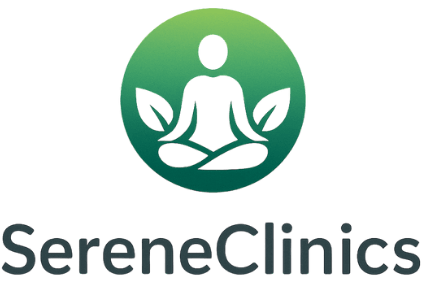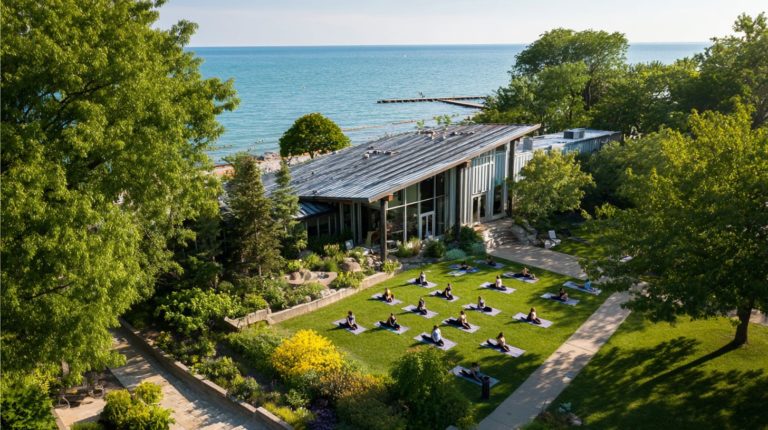Top 5 Holistic Health Centers in Mount Vernon, Illinois
In Mount Vernon, Illinois, holistic health offers a natural path to wellness amid busy lives.
Top 5 centers include Mt. Vernon Wellness Center, Chiropractic Wellness Center of Mt. Vernon, Aspire Integrated Health, Worthy Life Wellness, and LifeThrive-each backed by local Google Maps insights.
Holistic health involves chiropractic and integrative therapies, contrasts with conventional medicine, provides benefits for residents, and includes selection tips and visit prep.
Key Takeaways:
Contents
- 1 1. Mt Vernon Wellness Center
- 2 2. Chiropractic Wellness Center of Mt Vernon
- 3 3. Aspire Integrated Health, PLLC
- 4 4. Worthy Life Wellness, PLLC
- 5 5. LifeThrive
- 6 What Is Whole-Person Health, and What Part Does It Play in Mount Vernon?
- 6.1 What Services Do Whole Health Centers Usually Provide?
- 6.2 How Do Whole-Body Methods Differ from Standard Medical Care?
- 6.3 What Benefits Can Residents Expect from Local Whole-Person Care?
- 6.4 How to Choose the Right Whole-Person Health Center for What You Need
- 6.5 What to Get Ready for Before Going to a Whole-Person Health Center?
1. Mt Vernon Wellness Center

Mt Vernon Wellness Center is a health center in Mt. Vernon. It provides primary care and full assessment services for young adults and seniors.
It accepts women and men as patients. Payment options include cash and self-pay with flexibility.
Visitors to the center appreciate its commitment to accessibility, ensuring that everyone in the community can receive timely medical attention without barriers. Young adults facing job and life stresses in their early careers get preventive health screenings and mental health checkups from it to support good health over time.
Seniors benefit from thorough evaluations addressing chronic conditions, mobility issues, and medication management, all in a supportive environment that feels like home. This inclusive approach, open to all genders, fosters a sense of belonging and equality in healthcare.
The payment choices show its focus on the community. Accepting cash and direct payments from patients clears away money barriers.
This makes good care cheap for people without insurance. According to a 2022 study by the American Journal of Public Health, such flexible models increase healthcare utilization by 25% among underserved populations, proving the center’s strategy effectively bridges gaps in local wellness services.
2. Chiropractic Wellness Center of Mt Vernon
Chiropractic Wellness Center of Mt. Vernon provides personalized care for chronic disease management, including metabolic syndrome through targeted laboratory testing and therapy tailor approaches led by experts like Dr. Hussain.
At this center, patients get thorough evaluations that examine more than just visible symptoms. These evaluations check for problems in hormone levels, inflammation, and nutrient levels.
Based on Dr. Hussain’s long experience in combining medical approaches, the team creates custom treatment plans that combine chiropractic care with diet advice and changes to daily habits.
For example, people with metabolic syndrome might get detailed blood tests to find insulin resistance early. Studies from the American Diabetes Association back this, showing that this kind of testing improves results by 30-50%.
This personal plan reduces short-term pain and helps people regain their energy. It builds lasting health with whole-body treatments backed by evidence that fit each person’s body makeup and objectives.
3. Aspire Integrated Health, PLLC
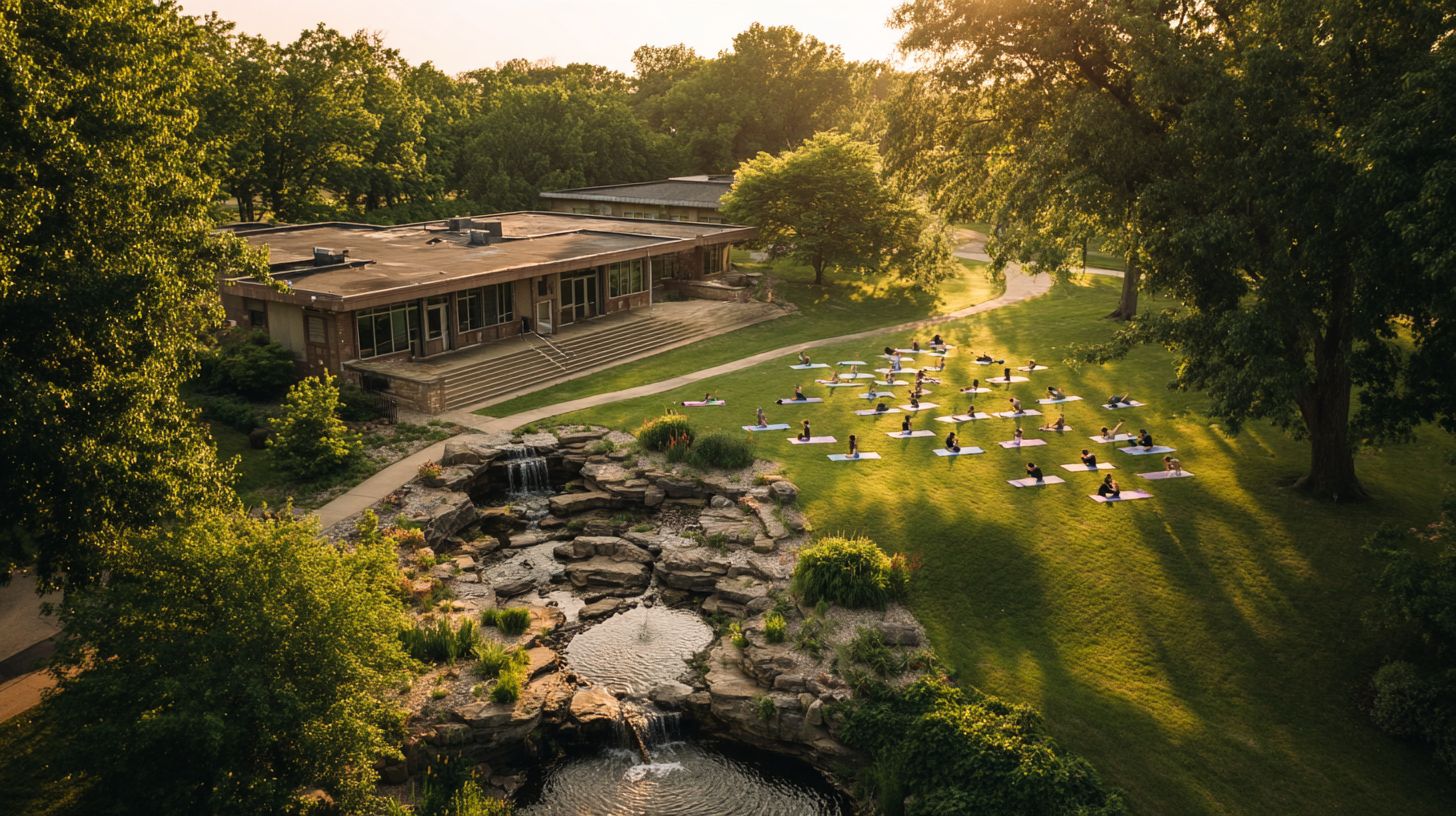
Aspire Integrated Health, PLLC, affiliated with SSM Health and Good Samaritan Hospital, focuses on mental health through diverse treatment options for co-occurring disorders, featuring individual psychotherapy, group therapy, and family therapy, accepted via Medicaid and Medicare.
This partnership ensures a seamless continuum of care, where patients can transition smoothly between inpatient services at the hospital and outpatient programs offered by the clinic.
They use complete treatment plans for people dealing with substance use problems who also have anxiety or depression.
These plans rely on science-supported methods that the American Psychological Association suggests.
Individual sessions allow for personalized exploration of triggers and coping strategies, while group therapy fosters peer support in a safe environment, reducing isolation as supported by studies from the National Institute on Drug Abuse showing improved outcomes for co-occurring conditions.
Family therapy, integral to their model, involves loved ones in the healing process, addressing relational dynamics that often exacerbate disorders.
Access is key.
Medicaid and Medicare cover these therapies and provide telehealth for patients in rural areas, so everyone can recover.
According to a 2022 report by the Substance Abuse and Mental Health Services Administration, such integrated care models significantly lower relapse rates by up to 30%.
4. Worthy Life Wellness, PLLC
Worthy Life Wellness, PLLC specializes in substance use recovery, addressing alcoholism and tobacco use with effective tobacco cessation programs, relapse prevention strategies, motivational interviewing techniques, intensive treatment, and an IOP program known as Intensive Outpatient Program, supported by private insurance and sliding fee scales.
Their approach begins with personalized tobacco cessation plans, drawing from evidence-based methods like those endorsed by the American Lung Association, which report success rates up to 25% higher with combined counseling and nicotine replacement therapy.
Relapse prevention focuses on building coping skills through cognitive-behavioral techniques, helping clients identify triggers and develop long-term resilience.
Motivational interviewing enables individuals by resolving ambivalence, as supported by a 2020 study in the Journal of Substance Abuse Treatment showing improved engagement in treatment.
The intensive treatment structure offers structured daily sessions for stabilization, transitioning seamlessly into the IOP, where participants attend three-hour group and individual therapies three to five days a week, allowing flexibility for work or family.
This program follows SAMHSA guidelines and focuses on complete recovery that includes family involvement and aftercare planning.
Financial accessibility is key; they accept most private insurances and offer sliding fee scales based on income, ensuring broader community reach without compromising quality care.
5. LifeThrive
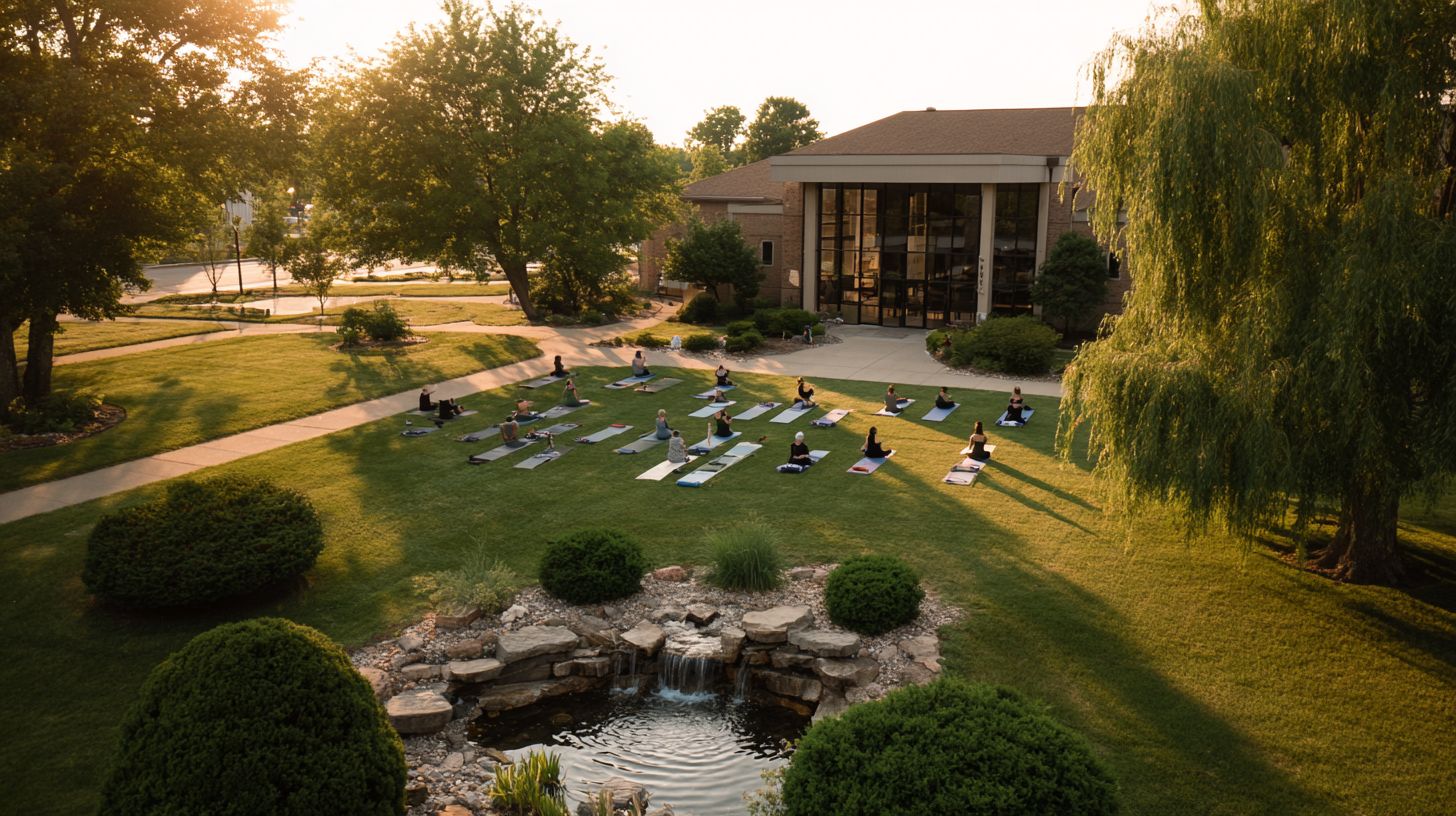
LifeThrive, operating as a non-profit organization, excels in case management and building life skills, complemented by nutritious food programs and support groups, all grounded in evidence-based care accredited by The Joint Commission, with guidance from professionals like Dr. Bishop and Dr. Taiwo.
They focus on all parts of a person’s situation. They make sure each participant gets case management suited to their specific needs.
Life skills training helps people manage everyday problems on their own.
This integration with nutritious food initiatives addresses immediate health concerns, drawing from studies like those from the World Health Organization, which highlight how balanced nutrition enhances cognitive function and emotional well-being.
Support groups build a feeling of community, which lessens feelings of isolation. Studies in the Journal of Community Psychology back this up.
Under The Joint Commission standards, their evidence-based practices are rigorously monitored, guaranteeing high-quality outcomes.
Dr. Bishop, a well-known specialist in behavioral health, provides new strategies for mental strength. Dr. Taiwo offers knowledge from nutritional science to improve meal programs, which last over time and make a difference in communities that lack resources.
What Is Whole-Person Health, and What Part Does It Play in Mount Vernon?
Health care in Mount Vernon treats the whole person by combining mental, physical, and emotional aspects. It supports community health through doctor oversight in secure clinic spaces that keep stabilization safe.
Local centers offer psychiatric services for conditions such as anxiety, ADHD, schizophrenia, PTSD, OCD, and depression. They give full support.
Facilities use tools like Recovery.com to get resources and MyChart to give patients easy access. This creates a helpful setting where people get individual care that fixes the main problems instead of only the symptoms. This model promotes long-term health outcomes, enableing Mount Vernon residents to thrive amid everyday challenges, with an emphasis on preventive care and lifestyle integration for sustained vitality.
This approach centers on concepts like balance and links between elements. Caregivers guide patients through therapies that blend standard medical practices with mindfulness exercises- our guide to top holistic health centers in nearby Mattoon, Illinois highlights practical examples of such integrated facilities.
Doctors and nurses in these clinics monitor patients to keep them stable and safe. They track heart rate and blood pressure and adjust treatments immediately. This lowers risks during sudden severe episodes. A 2022 study in the American Journal of Psychiatry showed this benefit, with 30% fewer relapses in supervised treatment for PTSD and schizophrenia.
For Anxiety and OCD, cognitive-behavioral techniques are paired with medication management, while ADHD benefits from structured coaching. Nutrition counseling and exercise routines help treat depression and other disorders.
Platforms like Recovery.com connect users to peer support groups and educational webinars, enhancing engagement, whereas MyChart streamlines appointment scheduling and progress tracking, allowing seamless coordination between therapists and primary care providers.
This setup improves how well people follow the plan and helps them join in their recovery process, which builds strength and general health in the group.
What Services Do Whole Health Centers Usually Provide?
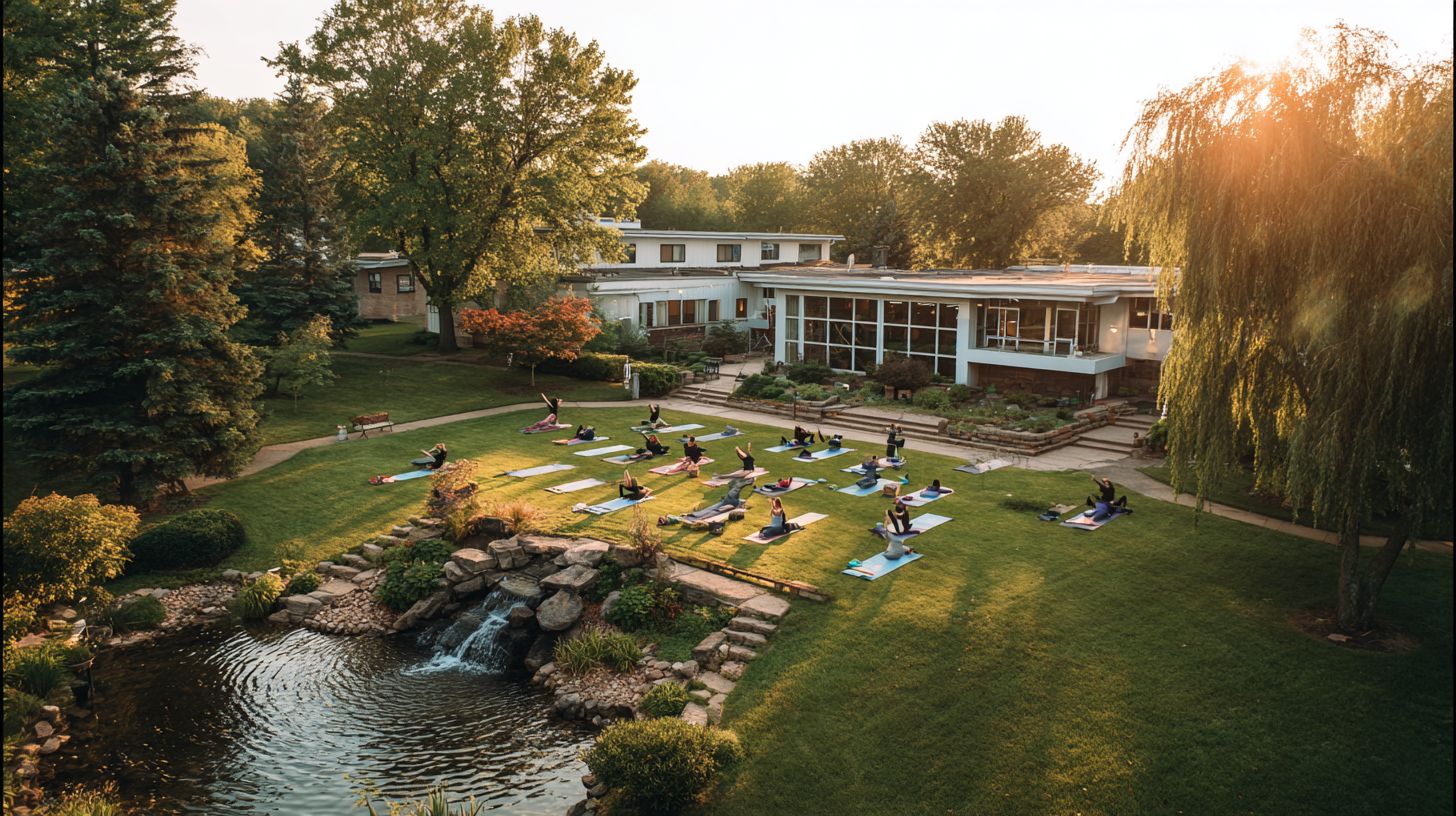
Health centers that treat the whole person often provide counseling along with care approved by the Joint Commission and backed by research. This includes lab tests, basic medical services for long-term illnesses, and classes on healthy eating and everyday skills.
Walk into a place where your mental health gets the care it needs through organized talk therapy sessions. These sessions follow Joint Commission protocols that maintain quality and safety.
These are more than casual talks. They use cognitive behavioral methods that research from the American Psychological Association shows work well, cutting anxiety by up to 50% in the people involved.
Lab tests support this by spotting imbalances soon. Primary care doctors treat diabetes or high blood pressure using plans made for each patient, based on CDC guidelines that stress early checks.
Workshops cover healthy eating, drawing from research at Harvard’s T.H. Chan School of Public Health. Studies show that eating whole foods lowers heart disease risk by 30%.
These classes guide you in choosing proper foods to maintain body strength.
Life skills training, from stress management to financial planning, builds resilience, fostering a sense of control that ties everything together for true, balanced wellness.
Worth exploring: Top 5 Holistic Health Centers in Mattoon, Illinois
How Do Whole-Body Methods Differ from Standard Medical Care?
These methods focus on care and therapy plans suited to each person instead of traditional medicine’s treatments that only target symptoms, as outlined in our comparison of naturopathy versus conventional medicine. They handle disorders that occur together and metabolic syndrome by combining case management, and use motivational interviewing to encourage behavior changes.
In contrast, while conventional methods often rely on standardized protocols that target isolated symptoms-like prescribing antidepressants without considering lifestyle factors-they can overlook the interconnected web of mental and physical health challenges. Integrated case management works well in this situation.
For example, a 2018 study in the Journal of Dual Diagnosis found that programs cut relapse rates by 30% for patients dealing with both substance use and metabolic problems. These programs link nutrition, exercise, and therapy.
Therapists using motivational interviewing gently guide individuals to voice their own motivations, fostering a sense of ownership over progress. Look at someone who has diabetes and anxiety.
Rather than depending just on medicine, they talk about their problems in direct conversations. This helps create habits that last, which usual medical care might miss.
Research from the American Psychological Association finds that methods centered on the patient help people follow their treatment plans better.
What Benefits Can Residents Expect from Local Whole-Person Care?
People in the area will see improved mental health results from local care. This includes handling drug and alcohol problems by quitting smoking, stopping relapses, and reducing anxiety and panic attacks. It helps both young adults and older people.
This approach integrates mindfulness practices and cognitive behavioral techniques, which studies from the National Institute on Drug Abuse show can reduce relapse rates by up to 40% in substance recovery programs.
For those battling alcoholism, combining tobacco cessation with therapies like nicotine replacement aids dual recovery, as evidenced by a 2022 Journal of Addiction Medicine paper highlighting improved sobriety maintenance.
People with anxiety and panic attacks can ease symptoms with specific yoga poses and breathing methods. This cuts down how often attacks occur, based on studies from the American Psychological Association.
Young adults benefit from group sessions fostering peer connections and digital tools for tracking progress, while seniors gain from gentle, community-based activities that combat isolation, promoting long-term emotional resilience and overall well-being in a supportive environment.
How to Choose the Right Whole-Person Health Center for What You Need
To pick a good health center that treats the whole body, check whether it takes Medicaid, Medicare, private insurance, and sliding fee scales. Pay close attention to non-profit groups that serve both women and men, including ones that allow smoking and vaping when those options apply.
You might also want to verify if they align with your lifestyle preferences, as some centers thoughtfully allow these habits in designated areas to reduce stress without judgment.
Research from the American Holistic Health Association shows that inclusive policies increase patient retention by up to 30%.
These policies build a helpful place for everyone.
For instance, organizations such as the National Center for Complementary and Integrative Health (NCCIH) support fees that adjust based on income. This allows more people to access complementary and integrative therapies.
Consider centers affiliated with institutions such as Johns Hopkins, where studies show integrated care improves outcomes for diverse groups.
Focusing on these factors first helps you find a place that supports your overall well-being, without money or social issues getting in your way.
What to Get Ready for Before Going to a Whole-Person Health Center?
Before you visit a center for whole-person care, get ready for an assessment and possibly individual psychotherapy, group therapy, or family therapy sessions. This matters most if you are enrolled in an IOP program under a doctor’s supervision for focused treatment of conditions like alcoholism.
One should start by scheduling a thorough evaluation with a qualified professional to identify specific needs and tailor the recovery plan. This might involve discussing personal history and current challenges openly, ensuring everyone involved feels supported.
For those tackling alcoholism, readying oneself means committing to daily journaling or mindfulness practices beforehand to build emotional resilience.
Research from the National Institute on Alcohol Abuse and Alcoholism (NIAAA) highlights that integrated programs combining therapy and medical oversight can reduce relapse rates by up to 50%, as seen in studies like the COMBINE trial.
Family therapy prepares loved ones by fostering communication skills, while group sessions encourage shared experiences in a safe space. In the IOP, you’ll have regular meetings with doctors to check your progress and change medications if necessary.
This helps make visits to the center work better for staying sober in the long run.

Sheetal Sharda has a background in CS. She got an interest in Holistic living back in 2018, and has since started exploring more into Naturapathy, Holistic Living, Yoga, and more. She got inspired to start SereneClinics to help people find reliable centers across the world.
